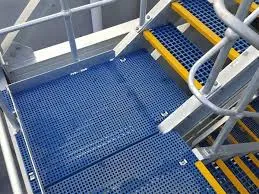
-
 Afrikaans
Afrikaans -
 Albanian
Albanian -
 Amharic
Amharic -
 Arabic
Arabic -
 Armenian
Armenian -
 Azerbaijani
Azerbaijani -
 Basque
Basque -
 Belarusian
Belarusian -
 Bengali
Bengali -
 Bosnian
Bosnian -
 Bulgarian
Bulgarian -
 Catalan
Catalan -
 Cebuano
Cebuano -
 China
China -
 China (Taiwan)
China (Taiwan) -
 Corsican
Corsican -
 Croatian
Croatian -
 Czech
Czech -
 Danish
Danish -
 Dutch
Dutch -
 English
English -
 Esperanto
Esperanto -
 Estonian
Estonian -
 Finnish
Finnish -
 French
French -
 Frisian
Frisian -
 Galician
Galician -
 Georgian
Georgian -
 German
German -
 Greek
Greek -
 Gujarati
Gujarati -
 Haitian Creole
Haitian Creole -
 hausa
hausa -
 hawaiian
hawaiian -
 Hebrew
Hebrew -
 Hindi
Hindi -
 Miao
Miao -
 Hungarian
Hungarian -
 Icelandic
Icelandic -
 igbo
igbo -
 Indonesian
Indonesian -
 irish
irish -
 Italian
Italian -
 Japanese
Japanese -
 Javanese
Javanese -
 Kannada
Kannada -
 kazakh
kazakh -
 Khmer
Khmer -
 Rwandese
Rwandese -
 Korean
Korean -
 Kurdish
Kurdish -
 Kyrgyz
Kyrgyz -
 Lao
Lao -
 Latin
Latin -
 Latvian
Latvian -
 Lithuanian
Lithuanian -
 Luxembourgish
Luxembourgish -
 Macedonian
Macedonian -
 Malgashi
Malgashi -
 Malay
Malay -
 Malayalam
Malayalam -
 Maltese
Maltese -
 Maori
Maori -
 Marathi
Marathi -
 Mongolian
Mongolian -
 Myanmar
Myanmar -
 Nepali
Nepali -
 Norwegian
Norwegian -
 Norwegian
Norwegian -
 Occitan
Occitan -
 Pashto
Pashto -
 Persian
Persian -
 Polish
Polish -
 Portuguese
Portuguese -
 Punjabi
Punjabi -
 Romanian
Romanian -
 Russian
Russian -
 Samoan
Samoan -
 Scottish Gaelic
Scottish Gaelic -
 Serbian
Serbian -
 Sesotho
Sesotho -
 Shona
Shona -
 Sindhi
Sindhi -
 Sinhala
Sinhala -
 Slovak
Slovak -
 Slovenian
Slovenian -
 Somali
Somali -
 Spanish
Spanish -
 Sundanese
Sundanese -
 Swahili
Swahili -
 Swedish
Swedish -
 Tagalog
Tagalog -
 Tajik
Tajik -
 Tamil
Tamil -
 Tatar
Tatar -
 Telugu
Telugu -
 Thai
Thai -
 Turkish
Turkish -
 Turkmen
Turkmen -
 Ukrainian
Ukrainian -
 Urdu
Urdu -
 Uighur
Uighur -
 Uzbek
Uzbek -
 Vietnamese
Vietnamese -
 Welsh
Welsh -
 Bantu
Bantu -
 Yiddish
Yiddish -
 Yoruba
Yoruba -
 Zulu
Zulu
fiberglass food grade equipment a closer look at its features and
A Closer Look at Fiberglass Food Grade Equipment Features and Benefits
In the modern food production and processing industry, the materials used in equipment can significantly impact food safety, quality, and operational efficiency. Among various materials, fiberglass food grade equipment has emerged as a prominent choice due to its unique features and benefits. Let’s delve into why fiberglass is becoming a preferred option in food-grade applications.
Understanding Fiberglass
Fiberglass is a composite material made from fine strands of glass fiber that are woven together and strengthened with a resin, typically polyester or epoxy. The resulting material is lightweight, durable, and resistant to various environmental factors. When specifically formulated for food-grade uses, it adheres to strict safety regulations, ensuring that it can safely handle food products without risk of contamination.
Key Features of Fiberglass Food Grade Equipment
1. Durability and Strength Fiberglass is known for its high tensile strength and resistance to impact. This makes it highly durable, ensuring that equipment can withstand the rigors of daily operation in busy food processing environments.
2. Corrosion Resistance Unlike metal materials, fiberglass is not prone to rust or corrosion, which is a significant advantage in food processing applications where exposure to moisture and cleaning chemicals is common. This characteristic extends the lifespan of the equipment and reduces maintenance costs.
3. Ease of Cleaning Food-grade fiberglass equipment is typically designed with smooth surfaces that minimize the accumulation of food particles, bacteria, and other contaminants. This ease of cleaning is critical in maintaining hygiene standards and complying with health regulations in the food industry.
4. Lightweight The lightweight nature of fiberglass makes it easier to transport and install. This can lead to reduced labor costs during set-up and maintenance, as well as increased flexibility in facility design.
fiberglass food grade equipment a closer look at its features and

5. Temperature Resistance Fiberglass can maintain structural integrity over a wide range of temperatures, making it suitable for various food processing applications, from freezing to cooking.
6. Non-reaction with Food Products Food-grade fiberglass is designed not to react with food substances, ensuring that there are no harmful leachates that could compromise food safety. This is particularly important for food service and processing applications where food integrity is paramount.
Applications of Fiberglass in Food Processing
Fiberglass food-grade equipment is used in a variety of applications within the food industry. This includes storage tanks, conveyor systems, tables, and countertops, as well as specialized equipment for specific processes. For example, fiberglass tanks can be custom-made to hold liquids, resistant to chemicals and catering to specific sterility requirements. Similarly, conveyor belts made from fiberglass materials are ideal for transporting food items, as they are both durable and easy to clean.
Environmental Considerations
As sustainability becomes an increasing concern across various industries, fiberglass offers several environmental benefits. Its longevity means less frequent replacement and disposal, reducing waste. Moreover, many manufacturers are now focusing on creating fiberglass products that are recyclable, aligning with environmental initiatives to minimize the ecological footprint of food production processes.
Conclusion
The use of fiberglass food-grade equipment has revolutionized the food processing industry with its array of beneficial features. Its durability, resistance to corrosion, ease of cleaning, and non-reactive properties make it an ideal choice for ensuring food safety and enhancing operational efficiency. As food safety standards continue to evolve and become more stringent, the role of advanced materials like fiberglass is likely to expand, offering both manufacturers and consumers a safer and more sustainable food production environment. Embracing fiberglass technology not only meets current industry demands but also paves the way for innovation in food equipment solutions.









